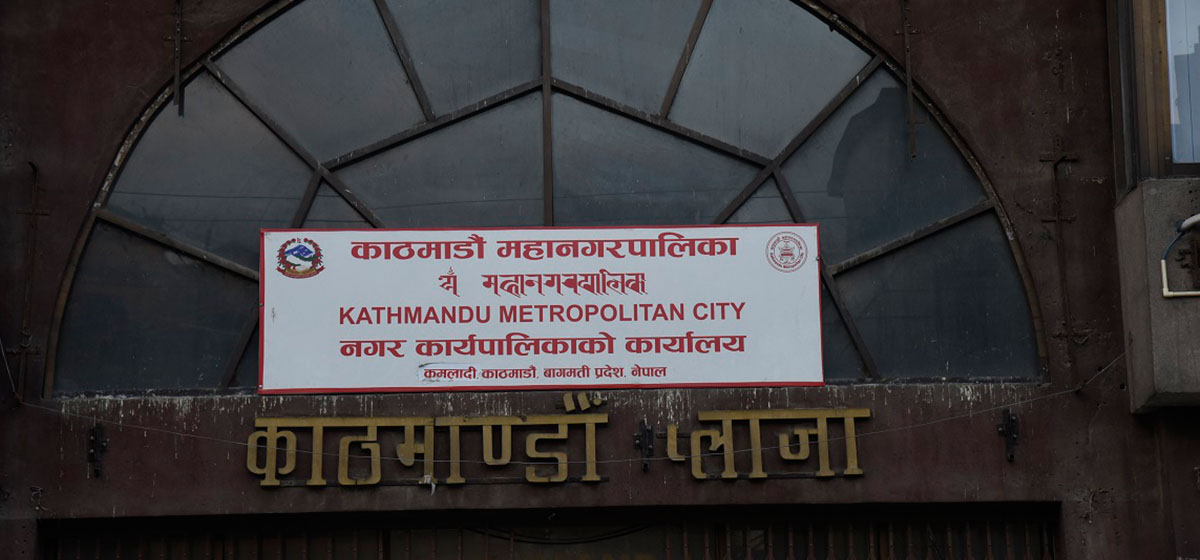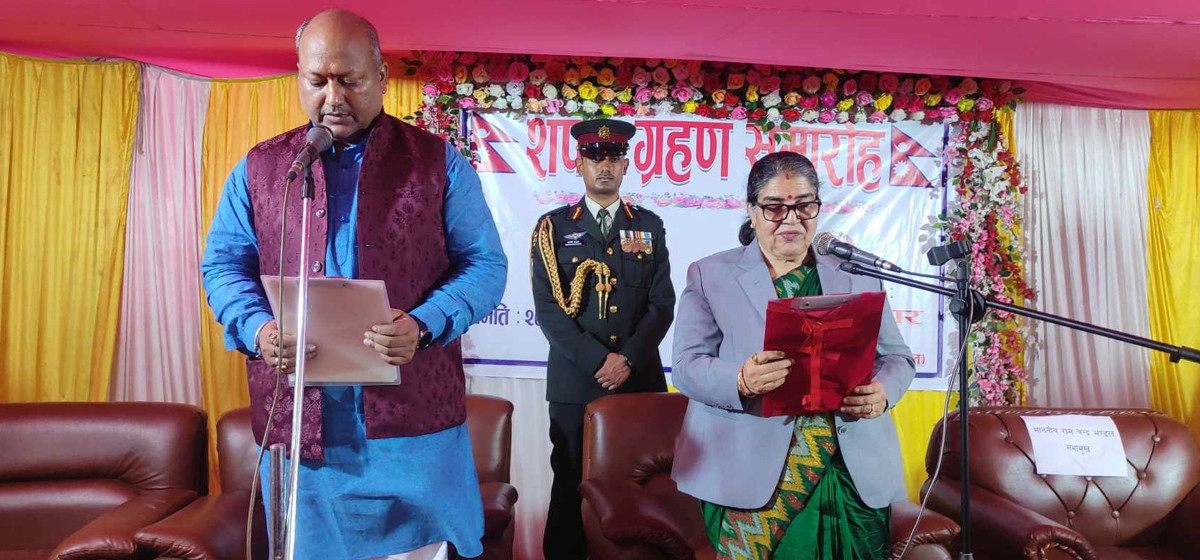
OR
NRB to implement market conduct supervision to protect banks’ customers from next FY
Published On: June 26, 2024 08:50 AM NPT By: Republica | @RepublicaNepal

NRB hints at not being too lenient in upcoming monetary policy
KATHMANDU, June 26: Nepal Rastra Bank (NRB), in a bid to safeguard service seekers from risks related to financial products and services, will be implementing market conduct supervision from the next fiscal year.
Speaking at a Pre-Monetary Policy Discussion organized by the Society of Economic Journalists-Nepal (SEJON) on Tuesday, NRB Governor Maha Prasad Adhikari said the central bank will implement measures effectively to protect consumers from anomalies in financial services. “As of now, the NRB has been doing its jobs based only on the regulatory market inspection mechanism including onsite and offsite inspections,” said Adhikari.
The new market supervision will place great value on identifying, understanding and tracking industry developments and market-level risks and changing consumer behaviors. The supervision system assesses both the existing business practices of financial institutions in dealing with their clients and the internal controls related to market conduct.
Recently, banks and financial institutions (BFIs) are becoming prone to multiple risks including a surge in non performing assets along with a soaring amount of bad debt. On the other hand, the BFIs have been found to be involved in a number of malpractices that include taking high service charge from their clients, not duly following the rule of ‘know your customers (KYC), not submitting the actual report on its weighted assets under the capital adequacy framework and considering low quality assets in collateral while issuing loans. These have led to high risks to the banks’ customers.
At present, banks are reluctant to issue loans despite being flushed with an overwhelming amount of the loanable funds. According to the NRB, the BFIs now have over Rs 600 billion to provide in loans.
NRB Governor Adhikari said the BFIs are reluctant to issue directed lending by the central bank showing various pretexts. “For small countries like Nepal, the specified lending is necessary to boost internal productions. In this regard, the BFIs must assume the role of taking risks, assessing risks and mitigating risks,” he added.
Adhikari hinted at not being flexible in the monetary policy for the next fiscal year. “The monetary policy has its own limitations, therefore we have to take it forward as the data driven policy,” he said.
Underlining the role of the private sector in the economic development, Adhikari highlighted the central bank's readiness to address genuine issues faced by the private sector. He emphasized that the banks must focus on solving real problems rather than engaging in vested interest groups.
Finance Secretary Madhu Kumar Marasini said the growth in capital injection is the main issue for development of the country. “The Ministry of Finance has been collaborating with the NRB to maintain coordination between the fiscal policy and the monetary policy to mobilize funds lying idle in the banking sector,” he said.
Meanwhile, the participants of the program urged the NRB to introduce policy to boost confidence of the private sector. Segregation of loans issued by the BFIs, introduction of new monetary tools, focus on growth of the real sectors, solving problems related to capital adequacy ratio, management of private sector’s equity funds and improvement in effectiveness of supervision by the central bank are among the concerns that the private sector raised to be addressed by the upcoming monetary policy.
You May Like This

CIAA asks NRB to probe loans issued against Lalita Niwas land
KATHMANDU, Feb 6: The Commission for the Investigation of Abuse of Authority (CIAA) has decided to ask the Nepal Rastra... Read More...

Dev banks seek flexibility in prudential lending limit
KATHMANDU, June 19: Development Bankers Association Nepal (DBAN) has urged the Nepal Rastra Bank (NRB) to allow 'B' class development... Read More...

Hospitals too get permits to borrow in foreign currency
KATHMANDU, Sep 1: Nepal Rastra Bank (NRB) has paved the way for hospitals, which make earnings also in foreign currency, to... Read More...
_20240628135302.jpg)







Just In
- Gandaki govt sets deadline for EV sellers to establish fast charging stations in provinces
- KMC invites applications for class 11 scholarships
- Auditor General questions Rs 121.5 million in grants distributed by Kathmandu Mayor Balen
- Madhesh CM Singh to seek vote of confidence on July 5
- Govt develops EV battery management action plan with third-party study
- Dr Bhattarai submits memorandum to PM Dahal, demanding formation of Budhigandaki Corridor Development Authority
- TBAN team off to Thailand to study Kathmandu-Bangkok road connectivity
- Conflict between KMC Mayor Balen and ward chairs escalates, stalling municipal assembly meeting










Leave A Comment